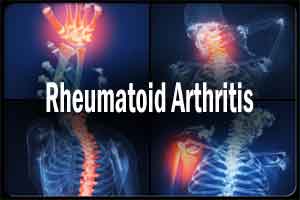- Home
- Editorial
- News
- Practice Guidelines
- Anesthesiology Guidelines
- Cancer Guidelines
- Cardiac Sciences Guidelines
- Critical Care Guidelines
- Dentistry Guidelines
- Dermatology Guidelines
- Diabetes and Endo Guidelines
- Diagnostics Guidelines
- ENT Guidelines
- Featured Practice Guidelines
- Gastroenterology Guidelines
- Geriatrics Guidelines
- Medicine Guidelines
- Nephrology Guidelines
- Neurosciences Guidelines
- Obs and Gynae Guidelines
- Ophthalmology Guidelines
- Orthopaedics Guidelines
- Paediatrics Guidelines
- Psychiatry Guidelines
- Pulmonology Guidelines
- Radiology Guidelines
- Surgery Guidelines
- Urology Guidelines
It is critical to screen patients with rheumatoid arthritis for hearing impairment

Rheumatoid arthritis (RA) is the commonest autoimmune arthritis affecting 1% of the general population. Despite its main articular manifestations, RA caninvolveextra-articular organs including the auditory system.
HI in RA is multifactorial. Mechanism of injury and predisposing factors are not clearly understood. Sensorineural hearing loss is the most common type in RA patients with a prevalence of 25-72%. Possible pathologies are including: Synovial destruction of incudostapedial and incudomalleolar joints, rheumatoid nodules, auditory neuropathy, destruction of the cochlear hair cells and drug-induced ototoxicity. "Elderly Patients and those with long disease duration, active disease, seropositivity, elevatedacute phase reactants and rheumatoid nodules are more likely to have HI", demonstrated a recent study by Amir Emamifar, Kristine Bjørndal and Inger Marie Jensen Hansen.
Environmental factors for instance smoking, alcohol and noise can deteriorate the condition. Passive smokers are also at risk of HI. Long-term exposure to alcohol affects hearing in RA, causing harmful effects on the cochlear function.
Results of pure tone audiometry revealed that RA patients have high prevalence of HI for all frequencies.Transiently Evoked Otoacoustic Emissions (TEOAEs) test has been used widely to evaluate cochlear function, and is capable of detecting various amounts of decreases in RA patients at an early stage of the disease.
Treatment of HI in RA is empirical. Oral steroids and intensifying Disease-Modifying Antirheumatic Drugs might be an option. Anti-oxidants (eg. vitamin E) may play a protective role for the inner ear. Regular audiometric test and TEOAEs should be performed. Patients will also benefit from the cessation of smoking and alcohol. Like other causes of HI in healthy individuals, HI in RA can also be managed by use of different types of hearing aids and implantable devices.
To read furhter click on the following link
http://benthamopen.com/ABSTRACT/TORJ-10-26

Disclaimer: This site is primarily intended for healthcare professionals. Any content/information on this website does not replace the advice of medical and/or health professionals and should not be construed as medical/diagnostic advice/endorsement or prescription. Use of this site is subject to our terms of use, privacy policy, advertisement policy. © 2020 Minerva Medical Treatment Pvt Ltd